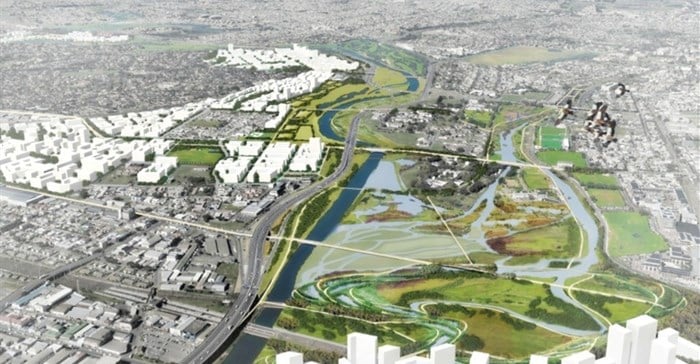
Top stories






More news













Logistics & Transport
Uganda plans new rail link to Tanzania for mineral export boost












Located towards the confluence of the Liesbeek and Black Rivers, TRUP involves cooperation between South African and Dutch experts. The project grew out of World Design Capital, a collaboration between the African Centre for Cities and the Dutch International New Town Institute. This South African-Dutch design project, The Density Syndicate, formed the basis for further cooperation.
On 24 March 2017 parties gathered to listen to the findings and recommendations of the co-designed workshops for phase two of the TRUP project.
“The Netherlands aspires to be a reliable and solutions-driven partner. We believe that it is essential to first understand South Africa’s unique context before setting out to achieve real results in brownfield urban development,” says Bonnie Horbach, the consul general for the Kingdom of the Netherlands in Cape Town.
Arising from the Density Syndicate project, a memorandum of understanding between the City of Cape Town, the Western Cape Government and the Kingdom of the Netherlands represented by Prime Minister Mark Rutte and his official delegation, was signed in January 2016 to enable Dutch and South African urban designers to continue to work together. The cooperation forms part of the Dutch campaign in South Africa, named #cocreateSA.
A series of workshops were structured to include 'peer reviewing' of existing identified challenges, followed by the formulation of written inputs based on innovative best practices and international benchmarking in design and scenario development. The workshops aimed to create consensus among the stakeholders around ‘catalytic projects’ before the implementation phase.
“We have aligned our economic diplomacy with South Africa’s transformation agenda and believe that by actively engaging with South African stakeholders, we can co-create ideas and innovations for a sustainable future,” says Horbach.
In phase two of the project, Dutch and South African specialists explored policy and research; design and planning; environmental and heritage opportunities; the feasibility of interconnected transportation systems and collaboration in developing water management.
“TRUP is a magnificent opportunity for the Western Cape province and City of Cape Town to lead the way in guiding the Global South towards an urban future that is socially equal, ecologically sustainable and economically vital,” says Eric Frijters founding partner of design practice, Fabrications and member of the Dutch Team.
“This has been a process of high engagement of stakeholder inputs that have provided both the Dutch and South African team with the opportunity to look at the TRUP area in an integral way by using the smart cities approach,” says Horbach.